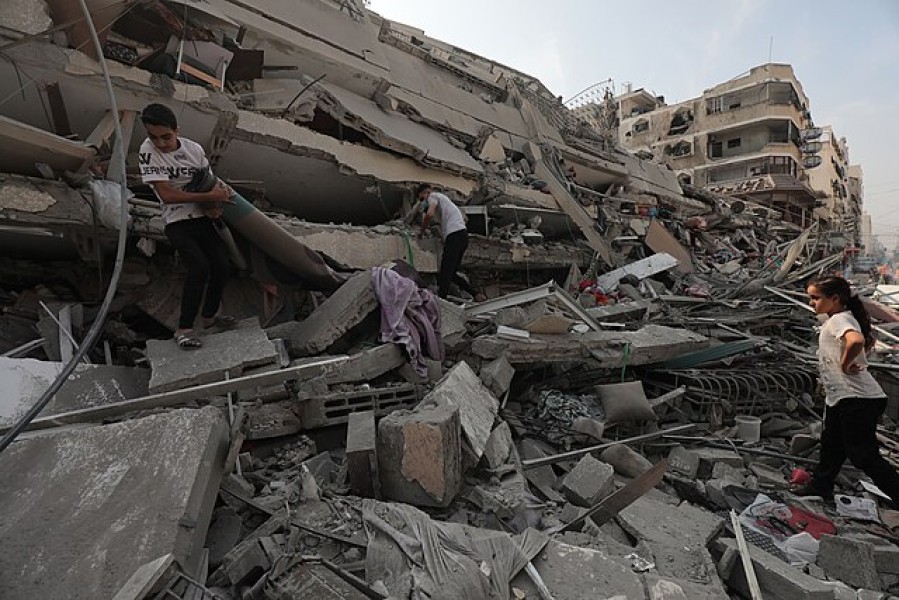In a statement issued on October 15, UN Secretary-General António Guterres wrote “In this dramatic moment, as we are on the verge of the abyss in the Middle East, it is my duty . . . to make two strong humanitarian appeals. To Hamas, the hostages must be immediately released without conditions. To Israel, rapid and unimpeded access for humanitarian aid must be granted for humanitarian supplies and workers for the sake of the civilians in Gaza.” These two objectives, valid in their own right, he continued, “should not become bargaining chips and they must be implemented because it is the right thing to do.”
The UN Security Council has heard but not listened to his words, paralyzed, as it is, by the blind defense of superpowers’ national interests and absorbed in political rhetoric. As a result, the council has betrayed its mission, and de facto disregarded the indescribable human suffering resulting from this latest violent and horrific episode in a 75-yearlong unresolved conflict.
Meanwhile, the situation in Gaza worsens by the minute. The number of victims rises each day as the bombardments continue and as desperately needed humanitarian aid—including basics such as clean water, food, medical supplies, and fuel—fails to reach civilians due to the unrelenting siege. “Gaza has become a graveyard for thousands of children. It’s a living hell for everyone else,” said UNICEF spokesperson James Elder on October 31. According to UNICEF, more than 3,450 children have reportedly died and at least 6,300 children have been reportedly injured since the siege on the enclave began on October 7. That number amounts to 420 children killed or wounded every day on average.
The endless stream of appalling, graphic images that have appeared in the press and on social media since October 7 attests to the massive scale of the devastation and human suffering, in flagrant contravention of international law and norms. So far, the parties to the conflict have ignored the calls to respect international humanitarian law and protect the civilian population. But, they are not the only ones who bear responsibility.
All states party to the Geneva Conventions have a duty to play their part in upholding international humanitarian law. Yet currently, those governments with power to persuade the actors engaged in the hostilities to respect the rule of law have failed to do so. Those states that supply weapons to the warring parties, especially those that in addition to ratifying the Geneva Conventions have endorsed the Political Declaration on Strengthening the Protection of Civilians from the Humanitarian Consequences Arising from the Use of Explosive Weapons in Populated Areas, must ensure that the use of the weaponry they provide is in compliance with the legal and ethical principles and norms to which they themselves subscribe.
We can argue that this violence must stop to prevent a further escalation of violence and destabilization in the region. It is true. We can also argue that this conflict will only end when its root causes are addressed, historical injustices are redressed, and a political solution is peacefully negotiated. That is also true.
But, for now, the moral imperative is clear and simple: a ceasefire, unhindered access to humanitarian aid, and the unconditional release of the hostages. Because it is just the right thing to do.
__________
PHOTO: Palestinians inspect the ruins of Aklouk Tower, destroyed in Israeli airstrikes, in Gaza City on October 8, 2023. (Wafa/APAimages via Wikimedia)

